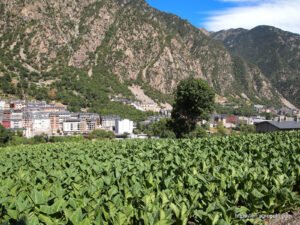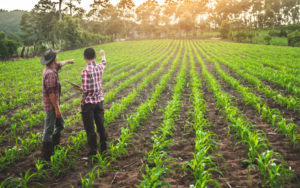Agricultural Education in Grenada.Grenada, often referred to as the “Isle of Spice”, is a small Caribbean country that boasts of its natural beauty and cultural vibrancy. Beyond its idyllic beaches and lush rainforests, Grenada has a deeply rooted connection with agriculture. For centuries, the land has been cultivated for nutmeg, cocoa, and various fruits and vegetables, making agriculture a significant sector for both the nation’s economy and its cultural identity. Given this context, agricultural education is vital to ensure that this legacy is passed on to younger generations and that Grenada can continue to thrive as an agricultural powerhouse.
Table of Contents
Agricultural Education in Grenada
Historical Context
The history of agricultural education in Grenada is intertwined with its colonial past. During the British colonial period, agriculture was primarily driven by large-scale plantations that produced crops for export. However, post-independence in 1974, there was a greater emphasis on developing a sustainable agricultural sector that would serve the local population and generate revenue through exports. This necessitated a more educated and skilled workforce, leading to the establishment of formal agricultural education programs.

Importance of Agricultural Education
Agricultural education is critical for several reasons:
- Economic Viability: Agriculture remains one of Grenada’s primary industries, especially when considering its export of spices and other agricultural products. By educating the population on modern agricultural techniques and best practices, Grenada can ensure the sector remains profitable and competitive.
- Sustainability: With the global emphasis on sustainable farming and organic practices, there’s a growing need to educate farmers about sustainable agriculture, soil conservation, and environmentally-friendly farming techniques.
- Cultural Preservation: Agriculture is not just about economic sustenance; it’s also about preserving a way of life, a cultural identity. By passing on knowledge, traditions, and practices, Grenada ensures the continuation of its rich agricultural legacy.

Agricultural Education Programs
Grenada has made substantial efforts to establish and maintain a robust agricultural education framework:
- Formal Education: Institutions such as the T.A. Marryshow Community College (TAMCC) offer courses in agriculture, providing students with a foundational understanding of the sector, its techniques, challenges, and opportunities.
- On-the-job Training: Many agricultural operations and farms in Grenada emphasize on-the-job training, where experienced farmers and agriculturalists mentor younger generations, passing down invaluable practical knowledge.
- Workshops and Seminars: The Ministry of Agriculture often collaborates with international organizations and NGOs to host workshops and seminars. These sessions cover topics ranging from organic farming to pest control and are accessible to farmers and stakeholders in the agricultural sector.
- Agricultural Extension Services: These services play a crucial role in bridging the gap between research, technology, and the farmer. Extension officers are trained professionals who offer advice, introduce new farming techniques, and provide practical solutions to problems farmers might encounter.
Challenges Faced
Despite its importance, agricultural education in Grenada faces several challenges:
- Urbanization and Youth Disinterest: As in many countries, there’s a drift towards urban areas, with many young people seeking opportunities in sectors other than agriculture. This leads to an aging farming population and a potential future shortage of skilled agricultural workers.
- Limited Resources: While the government recognizes the importance of agricultural education, resource allocation can sometimes be challenging, especially when competing with other sectors for funding.
- Adapting to Climate Change: Grenada, being an island nation, is particularly vulnerable to the effects of climate change. Agricultural education needs to swiftly adapt and incorporate lessons on how to combat and mitigate these challenges.
The Way Forward: Innovations and Strategies
- Promotion of Agri-preneurship: One way to lure the youth back into agriculture is by promoting it not just as farming but as a business opportunity – ‘agri-preneurship’. This entails providing not only agricultural knowledge but also skills in business management, marketing, and technology use in agriculture.
- Integrating Technology: Modern agricultural practices are heavily reliant on technology. From drone surveillance for large farms to software that helps in predicting weather patterns, introducing technology in agricultural education can make the sector more appealing to the tech-savvy younger generation.
- Collaboration with International Bodies: Partnering with international agricultural institutions can provide Grenada with insights into global best practices, access to resources, and opportunities for students to study and train abroad.
- Community-based Learning: Leveraging community farms and local agricultural initiatives for hands-on learning can provide practical experience and connect theory to practice.

Conclusion
Agricultural education in Grenada is not just a means to an end; it’s a link to the country’s past, a pathway to its future, and a testament to its resilience and adaptability. As the world continues to evolve, so will the challenges and opportunities in agriculture. With a rich history to draw upon and an unyielding spirit, Grenada is poised to navigate these challenges, ensuring that its “Isle of Spice” continues to flourish for generations to come.
